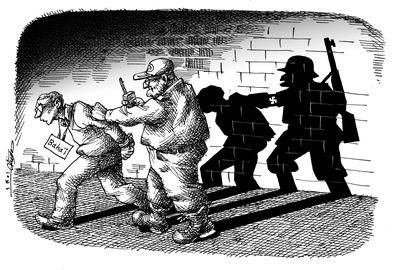UN experts* today called on Iranian authorities to stop persecution and harassment of religious minorities and end the use of religion to curtail the exercise of fundamental rights.
“We are deeply concerned at the increasing arbitrary arrests, and on occasions, enforced disappearances of members of the Baha’i faith and the destruction or confiscation of their properties, in what bears all the signs of a policy of systematic persecution,” the experts said.
The UN experts said the acts were not isolated but formed part of a broader policy to target any dissenting belief or religious practice, including Christian converts, Gonabadi dervishes and atheists.
“The international community cannot remain silent while Iranian authorities use overbroad and vague national security and espionage charges to silence religious minorities or people with dissenting opinions, remove them from their homes and effectively force them into internal displacement,” the experts said.
The Baha’i community is among the most severely persecuted religious minorities in Iran, with a marked increase in arrests and targeting this year. By April 2022, the experts received reports that over 1000 Baha’is were awaiting imprisonment, following their initial arrests and hearings. Since July 2022, security agents have raided the homes of over 35 Baha’is in various cities, and arrested several individuals across the country. The arrests included three former leaders of the Baha’i community, Mahvash Sabet, Fariba Kamalabadi and Afif Naimi, who were subsequently charged with “managing the unlawful [Bahá’í] administration.” The charge carries a sentence of up to 10 years in prison. Notably, Mr. Naimi was forcibly disappeared for over a month, until his fate and whereabouts were disclosed.
Read the OHCHR report in The National Tribune.

